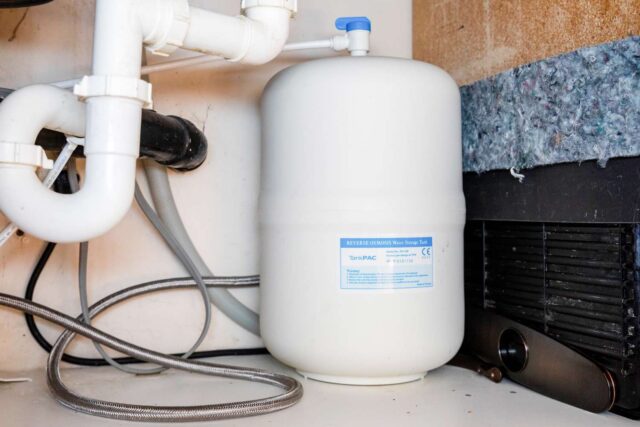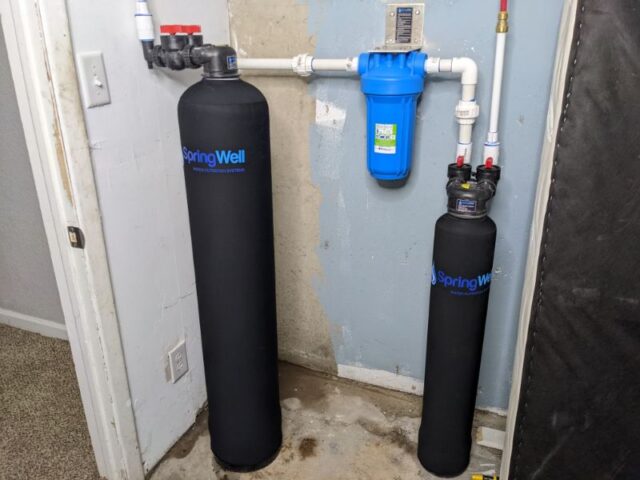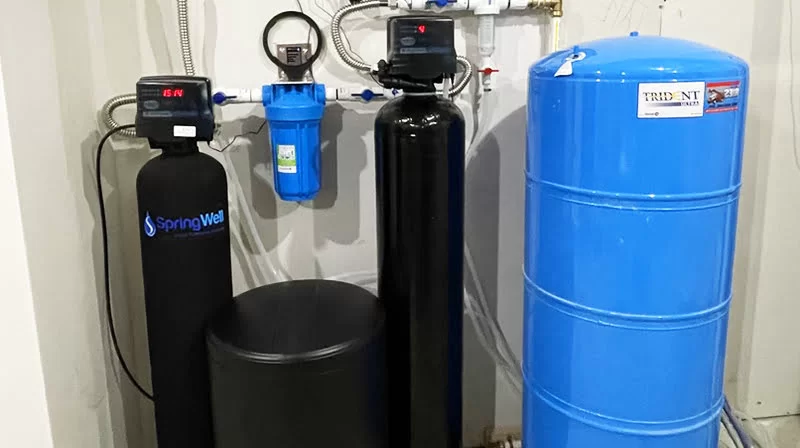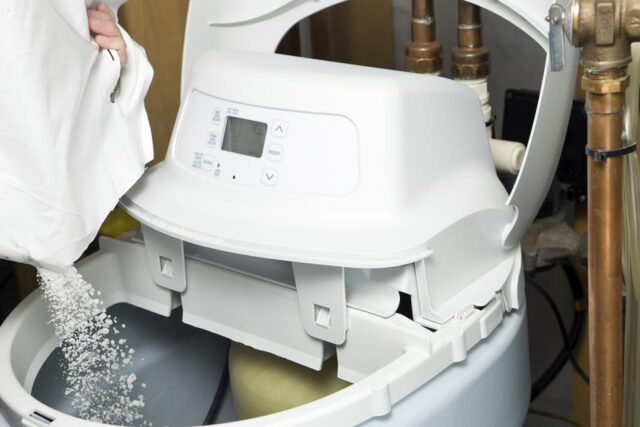
Water softeners have long been a staple in many households, providing a solution to the common problem of hard water. Hard water is a term used to describe water with high mineral content, primarily calcium and magnesium ions. While these minerals are not harmful to health, they can cause various issues, from scale buildup in pipes and appliances to dry skin and dull hair. Water softeners, as the name suggests, soften water by removing these minerals, ensuring that households can enjoy the benefits of soft water.
To explore further information on compact water softeners, visit the following link: https://purewaterblog.com/best-compact-water-softener/.
The Need for Water Softeners

Hard water, while not a health hazard, can be a considerable nuisance. When hard water flows through pipes, it leaves mineral deposits in the form of scale, which can clog pipes and reduce water flow. Appliances like dishwashers and water heaters are also adversely affected, leading to increased energy consumption and frequent breakdowns. Furthermore, using hard water for bathing and cleaning can result in less effective soaps and detergents, leaving behind soap scum and reducing the lifespan of fabrics and appliances.
Types of Water Softeners
When it comes to water softeners, there are primarily two categories: salt-based and salt-free. Salt-based water softeners operate by utilizing ion-exchange resins to substitute calcium and magnesium ions with sodium ions, effectively reducing the water’s hardness. In contrast, salt-free water softeners employ different techniques, such as Template Assisted Crystallization (TAC), which trigger the transformation of these minerals into harmless crystals that do not adhere to surfaces. This contrast in methodology allows consumers to choose between traditional salt-based softeners and more environmentally friendly, salt-free alternatives, depending on their preferences and the specific needs of their water treatment systems.
Regulations on Water Softeners
Recently, there has been a growing apprehension regarding the ecological repercussions of water softeners, particularly those of the salt-based kind. As a result, several regions have instituted stringent rules and outright bans on specific water softeners. The question that naturally arises is, what prompts these bans on certain water softeners? The motivation behind these restrictions lies in the recognized environmental harm posed by salt-based water softeners. They discharge a saline solution into wastewater, which ultimately infiltrates natural water bodies. This elevated salt content can disrupt aquatic ecosystems and pose a genuine threat to aquatic life. Additionally, high sodium levels in drinking water can prove detrimental, particularly for individuals with hypertension.
Health and Environmental Concerns
The primary reason behind banning certain water softeners lies in health and environmental concerns. Salt-based softeners discharge a brine solution into wastewater, which ultimately finds its way into natural water bodies. The excessive salt can disrupt the balance of aquatic ecosystems and harm aquatic life. Additionally, high sodium levels in drinking water can be a health risk for individuals with hypertension.
Specific Banned Substances

Some water softeners contain substances like hexavalent chromium and lead, which are hazardous to human health. The ban on these softeners is a preventive measure to protect consumers from potential harm. Hexavalent chromium, for example, is a known carcinogen, and its presence in drinking water can have serious consequences.
Alternatives to Banned Softeners
To address the ban on certain water softeners, alternatives have emerged that are both effective and environmentally friendly. Salt-free water softeners, as mentioned earlier, provide a suitable replacement for salt-based ones. Moreover, electronic water conditioners and magnetic water softeners offer alternative methods for reducing the effects of hard water without using chemicals.
Effectiveness and Efficiency

Comparing the banned and approved water softeners, it’s essential to note that some banned softeners may be more effective at removing minerals. However, these benefits must be weighed against the potential health and environmental risks they pose. Approved alternatives have made significant strides in improving their effectiveness while minimizing harm.
Local Variations in Regulations
The regulations and bans on water softeners are not consistent worldwide. Different regions have varying levels of concern for environmental and health issues. For instance, areas with a more significant focus on environmental protection may have stricter regulations, while others might prioritize the ease of water treatment.
Consumer Awareness

It is of utmost importance to enlighten consumers about the ramifications of using water softeners and the array of alternatives available. Empowering homeowners with knowledge enables them to make informed decisions when selecting water treatment systems. Opting for systems that are both secure and environmentally responsible contributes to personal well-being and the preservation of our natural surroundings. Furthermore, these choices facilitate adherence to local regulations, as they align with the evolving standards aimed at reducing the adverse environmental impact associated with certain water softeners. In essence, educating consumers plays a pivotal role in promoting safe, efficient, and eco-friendly water treatment solutions for a healthier world.
Future Trends in Water Softeners
As the industry adapts to changing regulations and consumer preferences, it’s likely that water softeners will continue to evolve. Future trends may include improved technology, increased efficiency, and a greater emphasis on eco-friendly solutions. The industry’s response to environmental concerns will be a key driver of these changes.
Conclusion
The ban on some water softeners is a response to the environmental and health concerns associated with traditional salt-based softeners and harmful substances. Consumers are encouraged to choose alternatives that are not only effective but also eco-friendly. By doing so, they can contribute to a healthier planet and a safer, more sustainable water treatment industry.












